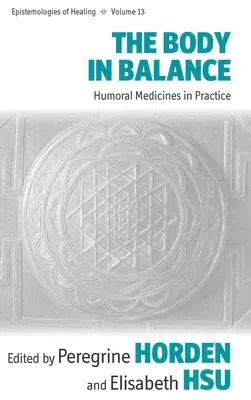The Body in Balance: Humoral Medicines in PracticeHardcover, 1 August 2013

Qty
1
Turbo
Ships in 2 - 3 days
In Stock
Free Delivery
Cash on Delivery
15 Days
Free Returns
Secure Checkout

Part of Series
Epistemologies of Healing
Part of Series
Epistemologies of Healing, 13
Print Length
300 pages
Language
English
Publisher
Berghahn Books
Date Published
1 Aug 2013
ISBN-10
0857459821
ISBN-13
9780857459824
Description
Product Details
Book Format:
Hardcover
Country of Origin:
US
Date Published:
1 August 2013
Dimensions:
22.86 x
15.24 x
1.75 cm
Genre:
Medical/Medicine Aspects
ISBN-10:
0857459821
ISBN-13:
9780857459824
Language:
English
Location:
New York, NY
Pages:
300
Publisher:
Weight:
571.53 gm